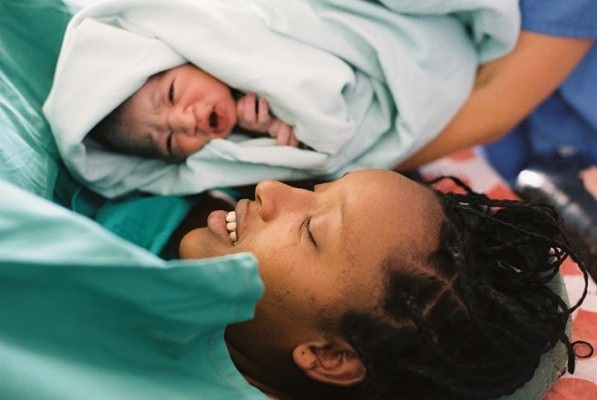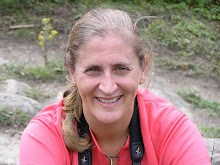12th April
So I am on the plane headed for London and will be back on English soil in a few hours (following a short touch down on Italian soil in Rome as this is the way the Ethiopian airlines routing to Europe works). My "adventure" is coming to an end and although I have no regrets at all about coming to Ethiopia, I have reached the stage where I am ready to be home.
People I meet are often admiring of the fact that I have done charity work in Ethiopia (they are all Ethiopians) and are surprised when I point out that the experience has been one of mutual benefit and I also suggest that they should be aware that people who undertake such work actually have an agenda of their own that they are fulfilling although I acknowledge (as is true for me) that it is not always possible to verbalise exactly what this agenda is- one thing I do know is that I come back from Ethiopia a slightly different person to the one who went- whether I am a better person is not for me to judge but I certainly have face up to things both professionally and personally that I had not face before. There are so many ways that I could reflect on my time in Ethiopia and the half-time reflections that I made previously all still stand but at this point I am now in a position to look back on my time as a memory and also to look forward to being home.
Things that I will miss (which are often also things that could go in to a thing to remember category):
- The warm smiles of people everywhere in Ethiopia- this is a universal feature both in Gimbi and everywhere we travelled to. I know that by nature I am rather a serious person (given to a frown rather than a smile as a natural expression) but I would swear that I have learned to smile more due to the need to return the gesture virtually constantly and perhaps because it is infectious.
- The wonderful birdlife- Ethiopia has the most amazing variety of endemic & migrating birdlife. Whilst not a particularly enthusiastic bird-watcher, their constant song is a reminder of what a terrible place the world would be without their presence.
- The warm sunshine- definitely not sorry to have missed such a bad winter (catching up on magazines one estimate says the worst for 23years). The climate in Ethiopia in January through March is lovely as the days were rarely too hot, rain was limited to the occasional short tropical downpour and clear blue skies were common. Sadly as it was a working trip (and the holiday definitely didn't include sunbathing destinations) my tan is limited to face, arms and feet but at least I look healthy.
- New friends both Ethiopian & "Faringe" that I made- keeping in touch is always difficult but I hope to do my best!
- Living a simple life with more time for reading, writing and thinking about life. This includes getting away from deadlines at work and at home, which seem to be ever present in my life.
Things that I would prefer to forget (i.e. the lows of the trip that unfortunately will probably constitute the most lasting memories as the emotions they evoke are strong):
- The initial feelings of terrible homesickness so bad that it is the one thing that might prevent me from doing it all again. A period away from home is a reminder of the importance of family and friends as you realise just how much you miss everyone when contact becomes difficult.
- When children broke into my bungalow in Gimbi in my third week (didn't write about it in my blog as it felt too negative at the time and thankfully I lost only the sort of items children would steal and nothing of great value). It was countered by the heart-felt apologies of everyone in the hospital and the humour of the response to it which was to pay the police to round up all the children in the compound who were not meant to be there (at that stage it was common to get them knocking on doors to ask for money or food) on the basis that although not all perpetrators they almost certainly knew who the culprits were and to take them all to the police station where they solemnly thumb-printed a document that they were told stated that they understood if they were found on the compound again without reason they would be arrested. Ethiopian discipline is stern but it solved the problem for everyone as the door-to-door begging ceased immediately.
- Having food poisoning one night at the end of my first week in Gimbi when I lived alone in my bungalow, I was on-call with Tekle away so no option but to soldier through. This also created anxiety that this would be a regular occurrence but thankfully it has not been the case- in spite of eating in local restaurants regularly with the exception of one other brief episode I have been well throughout- it will amaze you all to hear that I even drank tap-water (though this was filtered) as Ethiopia has a clean water supply in towns.
- The one maternal death that I encountered which will stay with me forever- one maternal death may not sound like a big deal for a doctor but in 22years as an obstetrician I had previously been directly involved with the care of only three women who died in pregnancy (and can still tell you the details of each of them). Maternal death remains a tragedy on so many levels that if I ever fail to feel the emotion of failure associated with failing to save a woman it is a sign that I have become too hard and it will be time to do something else. I feel thankful that it was only one as I know from email correspondence that in the 2 weeks since I left a further death has occurred in a woman at term with very high blood pressure (eclampsia).
- The terrible roads but enough said as I have mentioned it so often before.
- The poverty that is Ethiopia- this is a thing that I put in this list but will be impossible to forget nor would it would be appropriate to try. During our holiday Mark and I considered other poor countries we have travelled to and concluded that Ethiopia is the poorest (Madagascar & Mozambique are close seconds), this is a country where even a discarded plastic water bottle is a cherished item and villagers will almost fight to be the recipient of a bar of "hotel" soap. On the positive side the people appear happier than in many countries almost content with what they have rather than struggling with aspirations against terrible adversity. The poverty that is everywhere such that the radiant smile & wave from many children turns quickly into an outstretched palm and a "1 birr", "1 pen" or "highland" (the latter a used water bottle) request. The need is so great that the only way is to decline as to give individually as this could create a localised riot of need (we witnessed this with one tourist giving out pens & our guide giving soap) and reinforces the benefits of begging. However much you rationalise it you end up feeling terribly guilty for being rich and at the same time powerless to know what the answer is to change things (with many much more knowledgeable people than me struggling with this question in aid agencies all over the world).
Well I could keep going on any of these lists but as this is already one of the longest blog in the series it is time to draw to a close. My blog has been a great discipline (although sometimes it created the deadlines I was happy to avoid)- I started it for me as it seemed a good way of documenting the things that I saw around me but I have been enormously flattered by the number of people who have bothered to read it- so thank you to all of you.
Also a big thank-you for the generous support that many of you have given to Maternity Worldwide via my Just Giving site- my time has confirmed that it is a very worthwhile charity that is making a big difference to the lives of pregnant women in the West Wollega, who due to the Safe-birth fund feel able to come to the hospital when they encounter problems.
Three months in a country creates an affection and understanding of it that it is not possible to achieve on a shorter holiday and so I feel sure that whilst Ethiopia is not a country begin a "love-affair" with, I will definitely go back there in one way or another in the future and at that stage I will resume my blog again!

